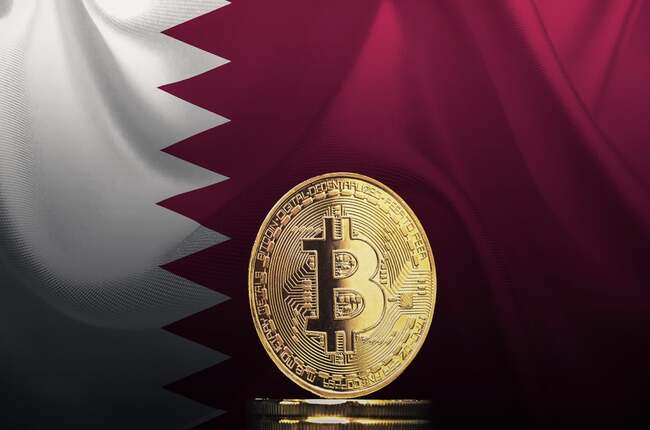Highlights:
- Qatar’s 2024 Digital Assets Framework establishes legal recognition for tokens and smart contracts, fostering financial sector innovation.
- The framework was developed in collaboration with 37 organizations, ensuring industry alignment and stakeholder trust.
- Companies can now apply for licenses to operate under the new regulations, supporting Qatar’s digital transformation goals.
Qatar has officially launched its 2024 Digital Assets Framework, marking a key moment in the nation’s financial sector. Spearheaded by the Qatar Central Bank (QCB) and the Qatar Financial Centre (QFC), this new regulatory regime provides a solid legal foundation for digital assets, including tokenization and smart contracts. The initiative aligns with Qatar’s Third Financial Sector Strategy and aims to attract both domestic and international players to its financial markets.
#Qatar's Financial Centre (#QFC) has introduced a comprehensive regulatory framework for digital assets, including tokenization, property rights in tokens, and legal recognition of smart contracts.
The framework is part of Qatar's Third Financial Sector Strategy, aiming to… pic.twitter.com/ZpA9jTFfHh
— TOBTC (@_TOBTC) September 2, 2024
A Collaborative Effort to Shape the Future
The framework’s development was a collaborative effort involving extensive consultations with industry stakeholders. Over 37 domestic and international organizations from the financial, technology, and legal sectors participated in an advisory group that played a critical role in shaping the regulations. This collective approach has resulted in a comprehensive and innovative regime that sets high standards for digital asset activities within the QFC.
Since the launch of the QFC Digital Assets Lab in October 2023, more than 20 startups and fintech companies have been accepted into the lab. These firms have been actively developing, testing, and commercializing their digital asset products and services in parallel with the framework’s creation. This dual-track approach highlights the importance of industry engagement in fostering a thriving digital asset ecosystem.
Regulatory Clarity to Drive Financial Sector Competitiveness
Qatar’s central bank governor, H.E. Sheikh Bandar bin Mohammed bin Saoud Al Thani, emphasized that the 2024 Digital Assets Regulations represent a significant milestone in the country’s financial sector journey. He noted that the framework would open up substantial opportunities while establishing a robust regulatory environment that supports Qatar’s broader digital transformation goals.
The QFC Digital Assets Framework 2024 provides legal recognition for property rights in tokens and their underlying assets and addresses critical areas such as custody, transfer, and exchange. Additionally, the framework legally recognizes smart contracts, ensuring that the digital asset ecosystem within the QFC adheres to international standards and best practices.
Yousuf Mohamed Al-Jaida, CEO of QFC, highlighted the framework’s potential to boost competitiveness in Qatar’s financial services sector. By offering regulatory clarity and a supportive environment for digital assets, the QFC aims to attract both domestic and international players, thereby enhancing the sector’s overall growth.
Following the launch, companies can now apply for licenses to operate as token service providers under the new regulations. The QFC expects this move to stimulate further innovation and growth within Qatar’s financial markets. In addition, this aligns with the final phase of the Qatar National Vision 2030.
With the 2024 Digital Assets Framework now in place, Qatar is well-positioned to become a leader in the digital asset space, setting a benchmark for other financial centers worldwide.
New Zealand to Adopt Crypto Reporting Rules by 2026
Recently, New Zealand’s government proposed to enforce stricter cryptocurrency reporting requirements by April 2026. The new regulations align with the Organisation for Economic Co-operation and Development’s (OECD) Crypto-Asset Reporting Framework (CARF). Revenue Minister Simon Watt’s proposal includes the Taxation Bill, which seeks to implement the OECD guidelines and update the Common Reporting Standard (CRS).
#New Zealand's Minister of Revenue introduced a bill to implement the #OECD's #Crypto-Asset Reporting Framework (#CARF), requiring crypto service providers to report user data to tax authorities.
Noncompliance could result in fines ranging from $12,000 to $62,000. The new… pic.twitter.com/90HdoX7Ms6
— TOBTC (@_TOBTC) August 27, 2024
Crypto service providers must comply with the new rules, facing fines ranging from 300 to 10,000 New Zealand Dollars for non-compliance. Additionally, service providers will need to submit transaction data to Inland Revenue by June 30, 2027. Consequently, this will ensure tax authorities have the necessary visibility.





